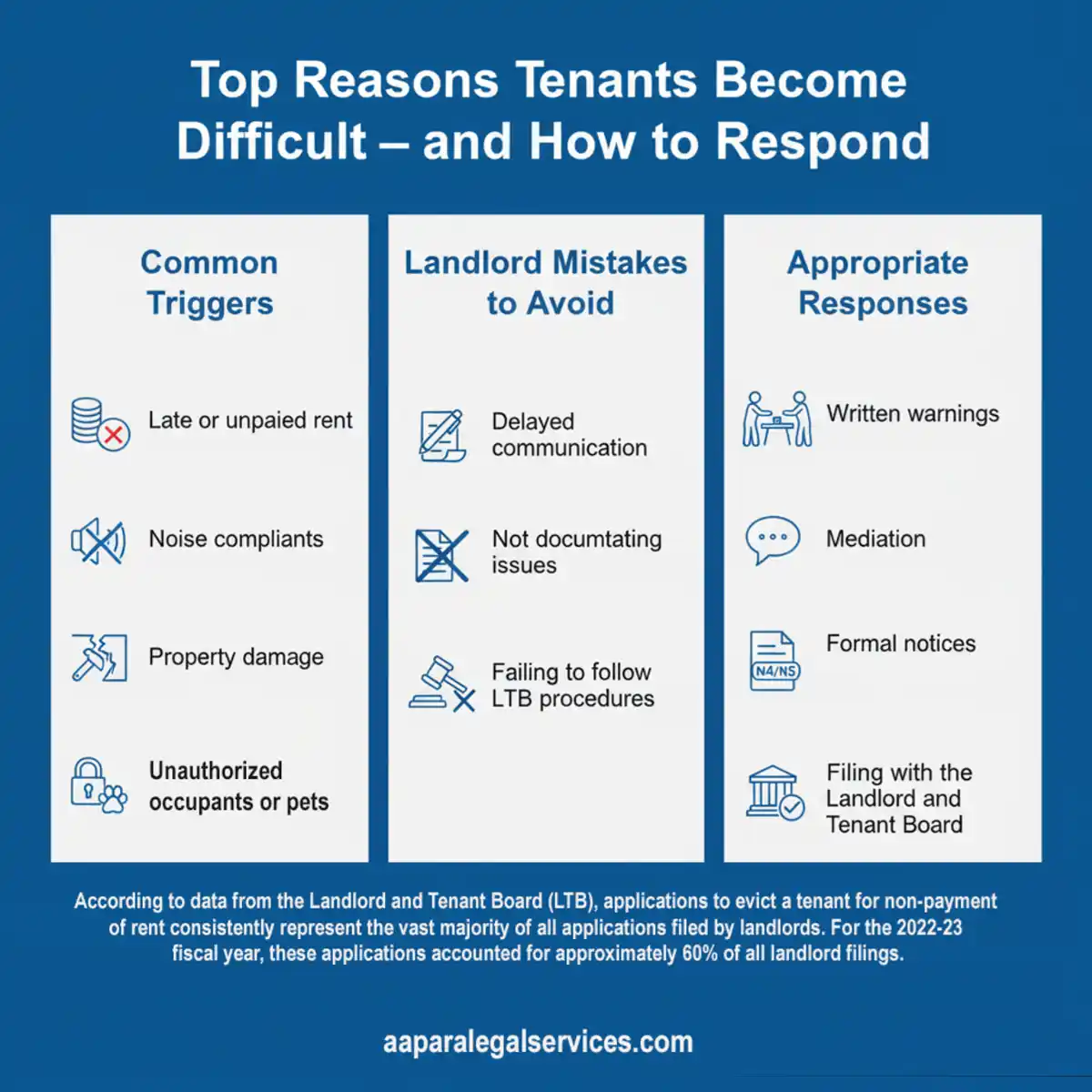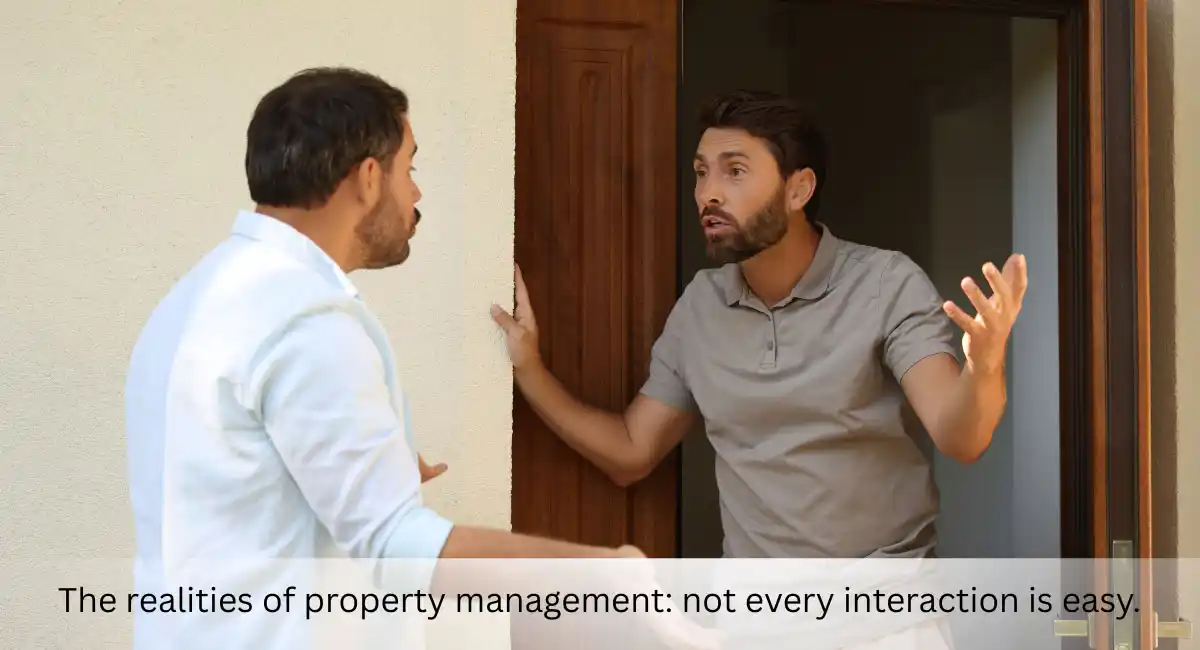Managing rental property in Ontario comes with its challenges, and one of the most common is dealing with a difficult tenant. According to the Landlord and Tenant Board of Ontario, thousands of disputes are filed each year—many involving issues like non-payment of rent, property damage, or disruptive behaviour. Understanding how to handle these situations legally and professionally is crucial for protecting your investment and maintaining peace of mind.
1. Prevention Is Better Than Cure
1.1 Screen Tenants Thoroughly
Run background checks, ask for references, and verify employment history. Prevention starts before the lease is signed.
1.2 Use a Solid Lease Agreement
Ensure your lease agreement clearly outlines tenant responsibilities, rules, and repercussions for breaking them.
1.3 Maintain Regular Communication
Stay in touch. Sometimes tenants become ‘difficult’ when communication breaks down or when they feel ignored.
1.4 Respond Quickly to Issues
Address maintenance problems and complaints swiftly. A well-maintained unit reduces tenant frustration and excuses for poor behaviour.
2. Managing a Difficult Tenant
2.1 Stay Professional and Calm
Even if a tenant is aggressive or emotional, you should stay calm, factual, and professional in all communication.
2.2 Document Everything
Keep written records of all communication, notices, and incidents. This can serve as critical evidence if legal action is required.
2.3 Know Your Rights and Responsibilities
Ontario’s Residential Tenancies Act outlines specific rules for both landlords and tenants. Make sure you understand them.
3. When Legal Action Is Necessary
3.1 Serve the Appropriate Notices
Depending on the issue (e.g., non-payment of rent, interference with others, damage), you must serve the correct notice.
3.2 File with the Landlord and Tenant Board (LTB)
If the issue is not resolved after serving notice, file an application with the LTB. This starts the formal eviction process.
3.3 Attend the Hearing
Prepare your case, bring evidence, and attend the hearing. You can represent yourself or work with a licensed paralegal to increase your chances of success.
3.4 Enforce the Order
If the LTB issues an eviction order and the tenant still doesn’t leave, you’ll need to go through the Sheriff’s Office for enforcement.
4. When to Hire a Paralegal
If you’re overwhelmed by the legalities or feel unsafe dealing with the tenant yourself, working with a licensed paralegal can help. Paralegals are experienced in landlord-tenant law and can guide you through notices, hearings, and evictions.
5. Final Thoughts
Dealing with a difficult tenant is never pleasant, but it doesn’t have to be disastrous. With proper documentation, clear communication, and knowledge of Ontario’s laws, you can handle the situation calmly and effectively. When in doubt, don’t hesitate to seek professional help.

Frequently Asked Questions (FAQs)
- What is considered a difficult tenant in Ontario?
- A difficult tenant could be someone who consistently pays rent late, causes damage, disrupts neighbours, or refuses to comply with lease terms.
- Can I evict a tenant for being rude or disrespectful?
- Not usually. You must have legal grounds for eviction such as non-payment of rent, substantial interference with others, or illegal acts.
- What if the tenant is damaging my property?
- You can issue a notice to end the tenancy for damage. If the issue is not rectified, you may apply to the LTB for eviction.
- How long does the eviction process take in Ontario?
- It varies depending on the case and how quickly you file documents and attend hearings, but it can take several weeks to months.
- Should I hire a paralegal to deal with a difficult tenant?
- Hiring a licensed paralegal can ensure proper procedures are followed and improve your chances of success.
